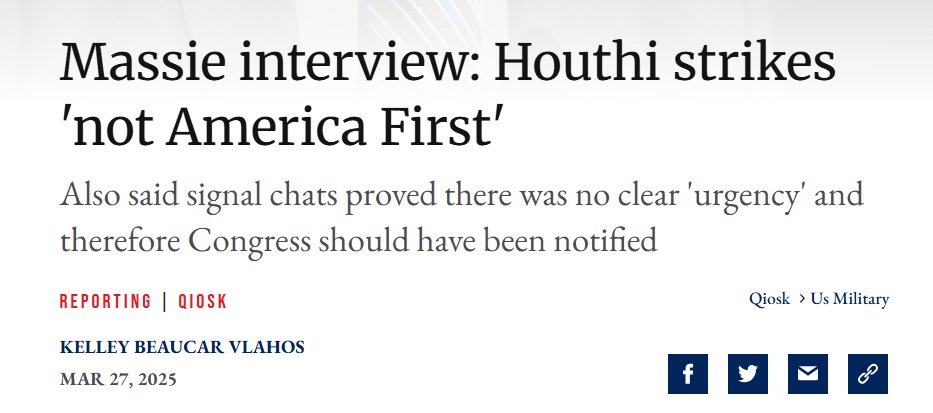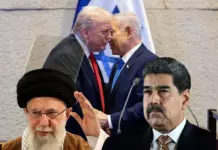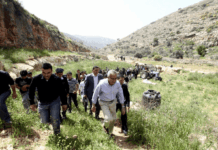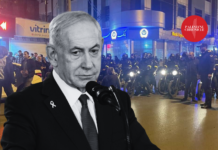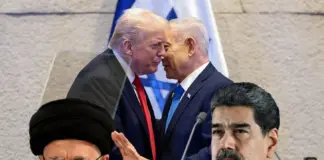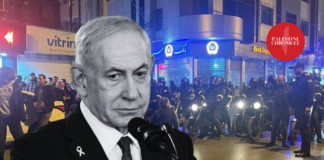by Kelley Beaucar Vlahos,
Also said signal chats proved there was no clear ‘urgency’ and therefore Congress should have been notified.
In an interview this morning with RS, Rep. Thomas Massie (R-KY) said there was clearly “no urgency” for U.S. military airstrikes against the Houthis in Yemen, now in their 13th day. Therefore, the administration should have gone to Congress for authorization and without it, those strikes are illegal.
Massie pointed to Vice President J.D. Vance’s contribution to the now infamous signal chat which described the strikes as they were happening. “JD” as identified in the chat, which has been authenticated by the administration, among other points, said that “there is a strong argument for delaying this a month, doing the messaging work on why this matters, seeing where the economy is, etc.”
“(Vance’s) contribution there was to prove that there was no urgency, and that there were no U.S. troops that were in imminent danger, that needed to be defended. Which is the instance in which you might allow the president to engage in hostilities — if it was in self-defense and urgent, and before they had time to come to Congress,” Massie told RS. ” But they obviously, based on that signal chat, had time to come to Congress, but they chose not to.”
Massie said there may be some effort in the House to push for a War Powers Act vote or for defunding the U.S. military operations in Yemen. He’s tried before, but there are hurdles: the rules committee, of which he is no longer a member, could prevent a War Powers Vote from getting to the floor, for instance. “There may be opportunities to offer amendments in the appropriations process to defund the activity as well. We’ve done that in the past,” he said.
So far there have been no movements in Congress as all of the attention has been on the titillating details of the chat, and the fact that a conversation about bombing targets in realtime in Yemen was taking place on an unsecured app with a then-undisclosed journalist from a unsympathetic magazine (an understatement) lingering in the background, screenshotting every minute.
“Yeah, a lot of people have missed the point of the leaked signal chat. I think people are going to debate, and are debating, was that the right forum? Should they been engaged in that channel? Was it reckless? Because they included a reporter, etcetera, etcetera, but they should be looking at what was said,” Massie explained. “And one thing that was said is that there’s no urgency here, okay? Well, that turns off their authority if they acknowledge there’s no urgency.”
In reporting last week it was clear that the Houthis, who had been standing down attacks since the phase 1 of Israel-Hamas ceasefire was brokered in January, had not launched attacks against U.S. ships in the Red Sea since before Trump’s inauguration. They had only begun after the ceasefire was broken and in response to the first U.S. airstrikes on Yemen on March 15.
Secondly, is the question of the American interest in the shipping interruptions caused by the Houthis, also questioned by Vance in the chat, and others, like Jennifer Kavanagh in RS last week.
“I’m starting to like this guy he said, chuckling, saying the two are already on the same page on a number of foreign policy issues, “but the point that he made … this is mostly goods that are going from Asia to Europe and, oh, by the way, is Egypt going to pay anything for this? Because they’re the ones who make billions of dollars every year off of their canal. That was in that signal chat too.”
“As soon as this attack happened, I tried to make a pragmatic economic argument against it. You know, an America First argument that this is predominantly not our shipping lane. It’s like 3% of the stuff going through there goes to America. Why are we subsidizing Europe and Asia in an America First Presidency?”
Meanwhile, Secretary of Defense Pete Hegseth has said the strikes have been “stunningly devastating” and the Wall Street Journal said Thursday they are “restoring deterrence.” But are they? The U.S. has been going after the Houthis and bombing Yemen on and off for over a year but their will and military capability, so far, appear un-thwarted.
“Long term, our meddling in the Middle East makes more enemies for us, whether it’s, you know, supplying all the bombs that are being dropped on Gaza, or whether it’s being in Afghanistan for over two decades, we’re creating new enemies that we don’t need to have,” Massie said. “And so if there is some element of deterrence, you have to balance it against the motivation that you’re generating for another 9/11.”
Asked if the U.S. should pursue a political solution rather than a military one in the Middle East, Massie said the latter is clearly not working.
“I don’t think the way they’re waging this war in Gaza is the best thing for Israel.”
Source: https://responsiblestatecraft.org
Disclaimer: We at Prepare for Change (PFC) bring you information that is not offered by the mainstream news, and therefore may seem controversial. The opinions, views, statements, and/or information we present are not necessarily promoted, endorsed, espoused, or agreed to by Prepare for Change, its leadership Council, members, those who work with PFC, or those who read its content. However, they are hopefully provocative. Please use discernment! Use logical thinking, your own intuition and your own connection with Source, Spirit and Natural Laws to help you determine what is true and what is not. By sharing information and seeding dialogue, it is our goal to raise consciousness and awareness of higher truths to free us from enslavement of the matrix in this material realm.
 EN
EN FR
FR

